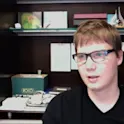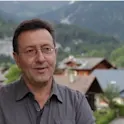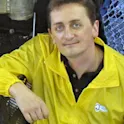A new perspective on the deep sea world
Frontiers Science Here: Jon Copley – A new perspective on the deep sea world from Frontiers on Vimeo. Jon Copley is the first British person to dive further down than 5 km deep in the ocean. He is one of Frontiers’ Science Heroes. As a marine biologist, he dives and explores life in the depth of the oceans, across the world. Specifically, he studies colonies of animals in island-like habitats on the ocean floor, near hydrothermal vents. His goal is to investigate the distribution, dispersal and evolution of these species. He is a bit like a 19th century discoverer. “That’s an analogy I often like to use because these deep-sea vents are island-like colonies of marine life on the ocean floor,” he said. “It’s like going to a new continent.” Ultimately, learning from deep-sea species can lead to applications though potential new treatements from marine microbes and new design for wings and fan blades inspired from whales flippers, among others. Copley currently works at the University of Southampton, in the UK, as an associate Professor of Marine Ecology. He also is the principal investigator of the Chemosynthetic Environments Research Team. In a Skype interview, he shares his passion for discovering […]


